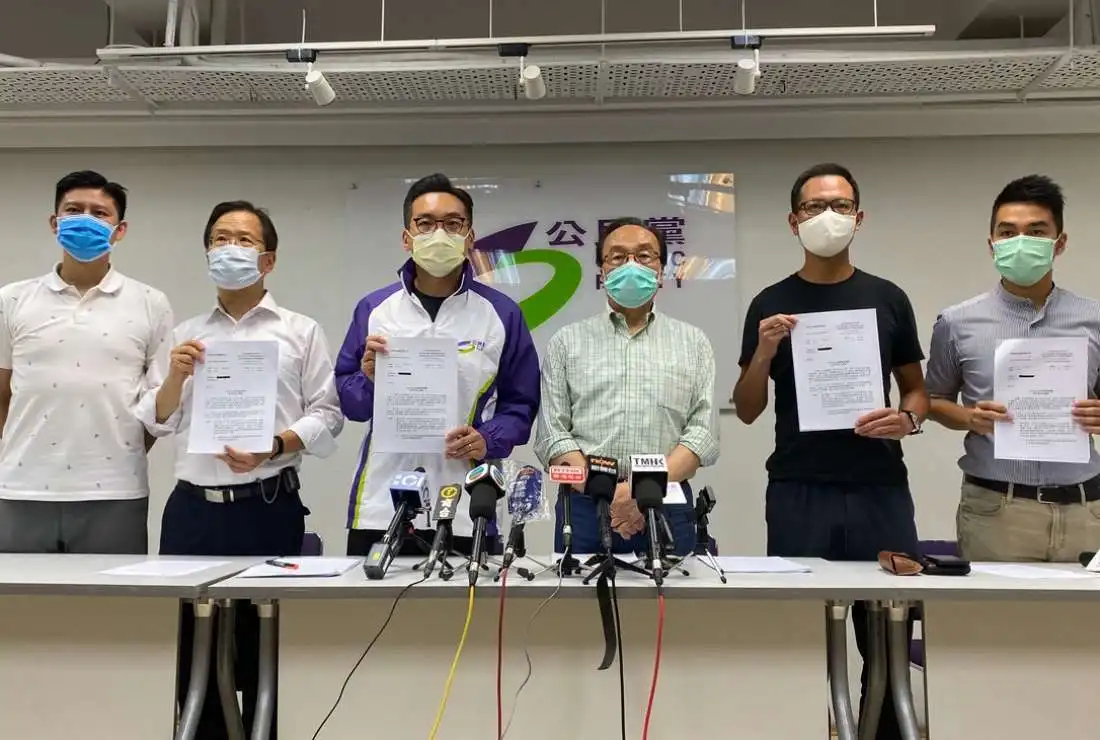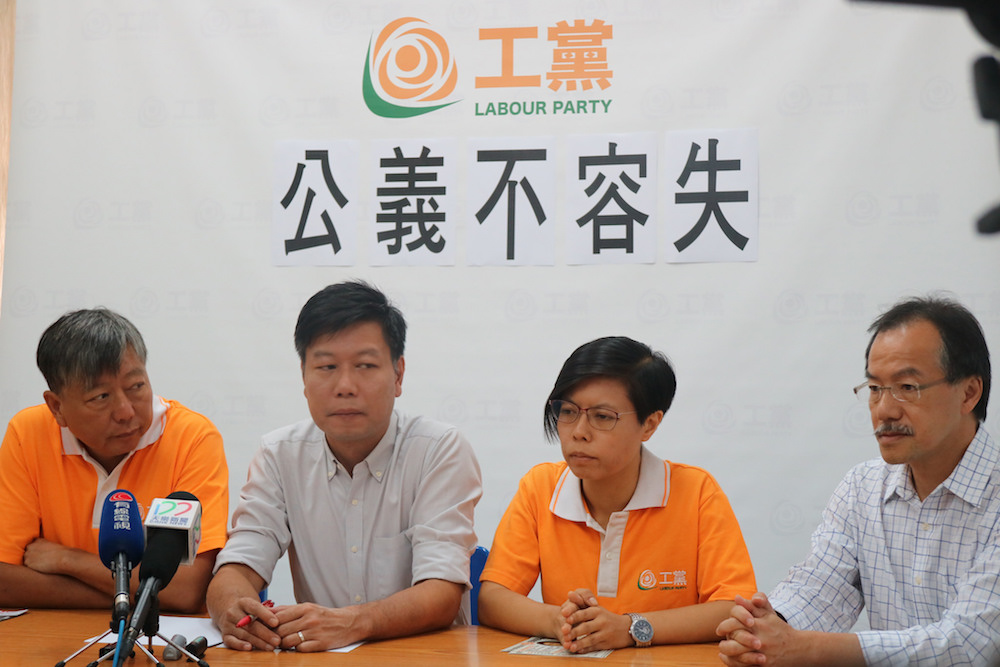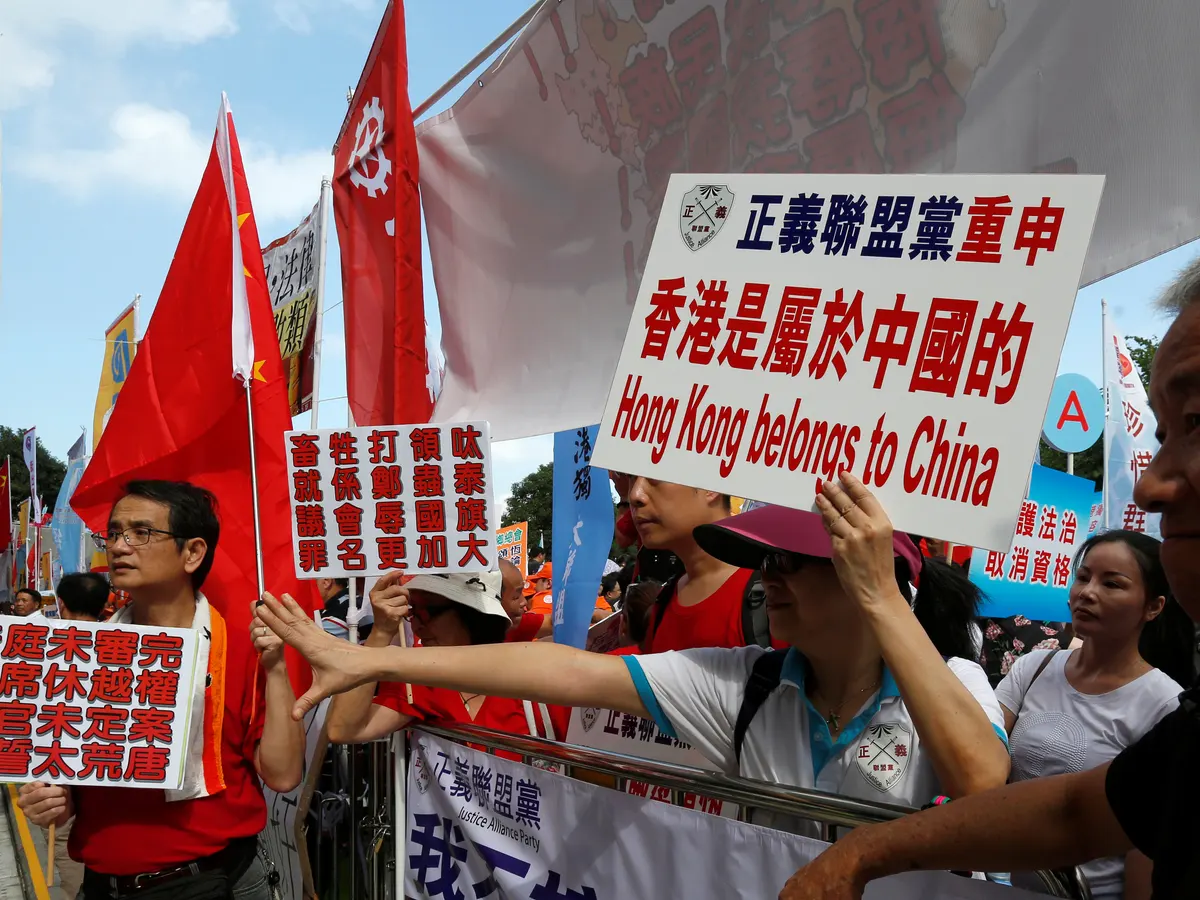Hong Kong Political Parties And Their Ideologies
Hong Kong is a Special Administrative Region of China with a unique political system. The region has a multi-party system where political parties have different ideologies and agendas. In this article, we will discuss the major Hong Kong political partiesand their ideologies.
The Democratic Party
The Democratic Party is the largest political party in Hong Kong and is the main opposition party in the Legislative Council (LegCo). It was founded in 1994 and advocates for a democratic government, universal suffrage, and civil liberties. The party has been instrumental in leading pro-democracy protests in Hong Kong.
The Civic Party
The Civic Party is a centrist political party that was founded in 2006. The party advocates for social justice, rule of law, and universal suffrage. It has been critical of the Chinese government's policies in Hong Kong and has supported pro-democracy protests.
The Hong Kong Federation Of Trade Unions
The Hong Kong Federationof Trade Unions (FTU) is the largest trade union federation in Hong Kong and is affiliated with the Chinese government. The FTU is not a political party, but it has a significant influence on politics in Hong Kong. The FTU supports the Chinese government's policies and is generally considered to be pro-establishment.
The Liberal Party
The Liberal Party is a center-right political party that was founded in 1993. The party advocates for free-market economics, individual freedoms, and limited government intervention. The party has traditionally been considered to be pro-establishment and has supported the Chinese government's policies in Hong Kong.
The New People's Party
The New People's Partyis a center-right political party that was founded in 2015. The party advocates for economic development, social welfare, and national security. The party has been criticized for being too pro-Beijing and has been accused of supporting the Chinese government's policies in Hong Kong.
The Labour Party
The Labour Party is a left-wing political party that was founded in 2011. The party advocates for workers' rights, social justice, and democracy. The party has supported pro-democracy protests in Hong Kong and has been critical of the Chinese government's policies.
The Pro-Beijing Parties
There are several political parties in Hong Kong that are considered to be pro-Beijing, meaning they support the Chinese government's policies in Hong Kong. These parties include the Democratic Alliance for the Betterment and Progress of Hong Kong (DAB), the Hong Kong Federation of Trade Unions (FTU), and the Business and Professionals Alliance for Hong Kong (BPA).
Challenges And Future Of Hong Kong Politics
The political situation in Hong Kong has faced several challenges in recent years, including the 2019 pro-democracy protests, the passage of the national security law, and the disqualification of pro-democracy legislators. These events have created a polarized political climate in the region, with tensions between the pro-democracy and pro-establishment camps.
Moreover, the Chinese government's increasing influence in Hong Kong has also led to concerns about the region's autonomy and civil liberties. The national security law, in particular, has raised questions about the extent to which Hong Kong can maintain its political and legal system separate from mainland China.
The future of Hong Kong politics remains uncertain, with many questions about the region's autonomy and the possibility of further political reform. The pro-democracy movement has called for greater democratic reforms, including universal suffrage, while the pro-establishment parties continue to support the Chinese government's policies.
The role of the international community, including the United States and the European Union, will also be crucial in shaping the future of Hong Kong politics. Several countries have already imposed sanctions on Chinese officials responsible for the implementation of the national security law, and more actions could follow.
The Impact Of Social Media On Hong Kong Political Parties
The rise of social media has had a significant impact on politics in Hong Kong. Social media platforms like Facebook, Twitter, and Telegram have become important tools for organizing and mobilizing pro-democracy protests and sharing information.
During the 2019 protests, social media played a crucial role in spreading information about protests, sharing videos of police brutality, and coordinating actions. Activists used encrypted messaging apps like Telegram to organize protests and avoid government surveillance.
Social media has also provided a platform for political debate and discussion in Hong Kong. Politicians and activists use social media to engage with supporters and critics, share their perspectives on political issues, and build support for their agendas.
However, the use of social media has also created new challenges for Hong Kong politics. The spread of disinformation and fake news on social media has fueled conspiracy theories and misinformation, which can be difficult to counter.
Moreover, the Chinese government has used social media to influence public opinion in Hong Kong, using tactics like astroturfing and targeted propaganda to promote their agenda and undermine the pro-democracy movement.
The Future Of Hong Kong Politics
Looking ahead, the future of Hong Kong politics is likely to be shaped by a number of key factors, including:
The Chinese Government's Policies
The Chinese government's policies towards Hong Kong will continue to have a significant impact on the region's politics. The implementation of the national security law in 2020 and the recent electoral reforms have sparked concerns about the erosion of Hong Kong's autonomy and civil liberties. Continued pressure from the Chinese government could further stifle the pro-democracy movement and limit political freedoms in the region.
International Pressure
The international community's response to the Chinese government's actions in Hong Kong will also play a role in shaping the future of the region's politics. Sanctions and other forms of pressure from countries like the United States and the United Kingdom could increase pressure on the Chinese government to respect Hong Kong's autonomy and human rights.
Social Movements
Social movementswill continue to be a driving force in Hong Kong politics. The pro-democracy movement has shown resilience and determination in the face of government crackdowns and increased pressure from the Chinese government. Continued mobilization and activism could bring about meaningful change in the region.
Economic Factors
Economic factors will also play a role in shaping the future of Hong Kong politics. As one of the world's major financial centers, Hong Kong's economy is closely tied to global markets. Economic instability or major shifts in trade and investment patterns could have significant political implications in the region.
The Role Of Technology
The role of technology in shaping Hong Kong politics will also continue to evolve. Social media and other digital tools will remain important platforms for political mobilization and organization. However, the use of technology by the Chinese government to monitor and control dissent could also pose challenges for the pro-democracy movement.
People Also Ask
How Many Political Parties Are There In Hong Kong?
There are multiple political parties in Hong Kong. While the exact number varies depending on how they are categorized, there are typically around a dozen major political parties in the region.
Is Hong Kong Conservative Or Liberal?
Hong Kong's political landscape is diverse and cannot be easily classified as either conservative or liberal. The pro-democracy and pro-establishment camps represent competing ideologies, but there is a wide range of political beliefs and perspectives within each camp.
What Type Of Government Is Hong Kong?
Hong Kong is a Special Administrative Region (SAR) of the People's Republic of China, with a political system that operates under the "One Country, Two Systems" framework. This means that while Hong Kong has a high degree of autonomy and its own legal system, foreign relations, and economic policies, it is ultimately under Chinese sovereignty.
The government of Hong Kong is led by a Chief Executive, who is appointed by a 1,200-member Election Committee and approved by the central Chinese government. The Legislative Council (LegCo) is the region's legislative body, consisting of 70 members, with 35 directly elected seats and 35 seats representing various functional constituencies.
Conclusion
The impact of social media on Hong Kong political parties is significant and complex, with both positive and negative effects. Social media has provided a platform for organizing and mobilizing pro-democracy protests, sharing information, and engaging with supporters and critics.
However, the spread of disinformation and fake news on social media has created new challenges for Hong Kong politics, while the Chinese government's use of social media to influence public opinion has raised concerns about the region's autonomy and freedoms.
As Hong Kong continues to navigate its complex political landscape, the role of social media will remain an important factor in shaping the region's future. Balancing the benefits of social media with the challenges it poses will require careful attention and ongoing dialogue among politicians, activists, and the public.
If you want to delve deeper into the topic of Hong Kong politics, check outthe latest news and analysis from Washington Independent.


